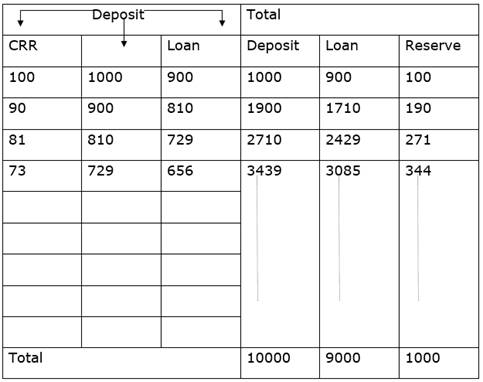Do you consider a commercial bank ‘creator of money’ in the economy?
The primary function of commercial banks is money creation or credit creation in an economy. It is assumed that the depositors would not be withdrawing all of their funds at a particular time. They have the capacity to generate credit through demand deposits. These demand deposits make credit more than the initial deposit.
For example Let us assume that the entire commercial banking system is one unit and call it Bank. The reserve ratio for the bank is 10%. Assuming that there is no leakage of cash and all transactions are cheque transaction. A deposits rupees 1000 in bank, the bank will keep 100 as cash reserve and will lend 900 Mr B. Mr B uses the money to buy good from C who deposits the same into Bank now the bank will keep the reserve ratio of 10% and given new loan of 810, and so on.
This is presented by the following table

All amounts are rounded off to the nearest rupee
The credit multiplier is given by 1/CRR = 1000 (1/10%) = 10000
Thus, with a cash reserve of 10%., a deposit of Rs. 1,000 results in a Rs. 10,000 increase in money supply